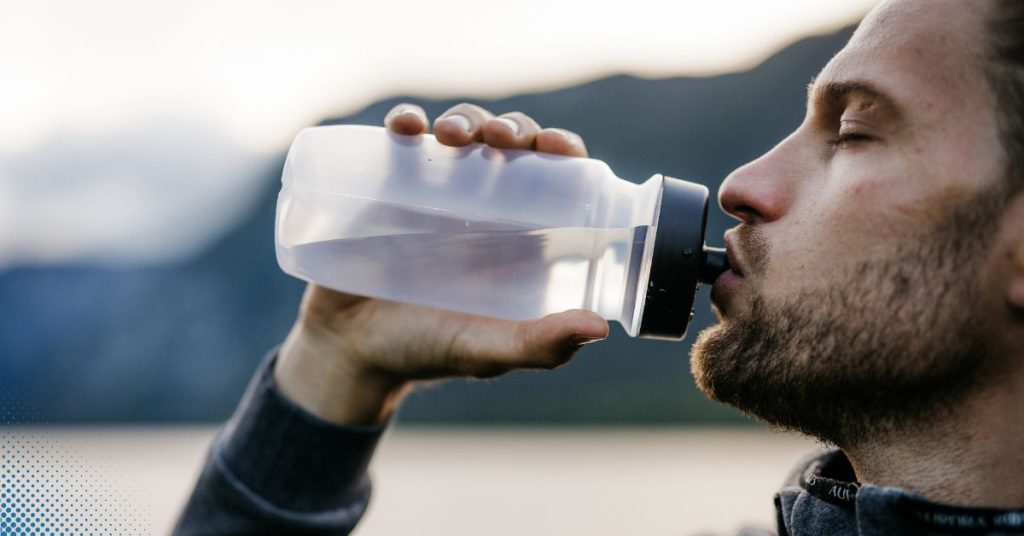Introduction
A good diet is not a nice-to-have for runners over 40; it’s a game-changer. A proper runner’s diet fuels your performance, speeds up recovery, and helps you stay injury-free as your body adapts to the demands of running in midlife. The impact of nutrition gets bigger in age on everything from energy levels to muscle repair.
The right food choices can make every mile more manageable and enjoyable. This article will share the top 4 nutrition secrets for midlife runners. This includes meal timing for maximum energy and endurance, incorporating anti-inflammatory foods into your diet to reduce soreness and support recovery, meeting your protein needs to maintain muscle strength and repair, and perfecting hydration strategies.
When you take these plans seriously, you will experience the change on and off the road. Let’s get into it!
Understanding the Special Needs of a Runner’s Diet
We undergo changes in the body as we age, which impacts how we process food and fuel our workouts. Metabolism automatically slows down after 40, meaning fewer calories are burned at rest. Combined with changes in muscle mass and recovery speed, these shifts make it essential for seniors to adapt their runner’s diet to meet evolving nutritional requirements.
The traditional diet advice emphasises carbohydrates and energy-dense foods, but the midlife runner needs a more balanced approach. For instance, protein becomes vital to maintain muscle mass, while healthy fats and anti-inflammatory foods support joint health and recovery. Not considering these factors could increase the risk of injuries and lead to longer recovery times.
Balanced nutrition is at the heart of the Midlife Runners Paradise (MRP) framework. You’ll fuel your runs effectively while supporting overall health by focusing on a diet rich in whole foods, including lean proteins, complex carbs, and plenty of fruits and vegetables. Prioritising the proper nutrients improves performance and reduces the likelihood of setbacks like injuries or burnout.
Adapting your diet to your body’s needs as you age keeps you strong, energised, and ready to take on the miles ahead.
Secret #1: Optimal Runners Diet Timing for Maximum Energy
The timing of your meals and snacks is as important as what you eat in your runner’s diet. Proper meal timing can help you maintain steady energy levels, enhance performance, and speed up recovery after your runs.
Pre-Run Nutrition
For optimal energy, consume a balanced meal 2-3 hours before running. Regarding specifics, easily digestible carbohydrates for quick energy, moderate protein, and little fat to avoid stomach discomfort are recommended. A light snack like a banana or a slice of toast 30 minutes before heading out can make a big difference for early morning runs.
Post-Run Recovery
Recovery window: This is important—try to eat within 30 minutes of finishing your run. A combination of protein and carbohydrates helps to replenish glycogen stores and aids muscle repair. For example, a smoothie with Greek yoghurt, fruit, and oats makes an excellent recovery option.
Adjusting for Training Intensity
For shorter runs, a small snack will suffice post-run; however, for longer or high-intensity running, the meal afterwards should be substantial to re-building energy levels.
Some nutritional timing errors include omitting recovery meals and eating heavily before running. Tweak your schedule for optimal performance and recovery to help your body feel energised mile after mile.
Secret #2: Anti-Inflammatory Food Powers in Runner’s Diet
In one regard, including anti-inflammatory foods in a runner’s diet can do wonders for joint health, recovery, and better performance. Since inflammation becomes an all-important challenge the more we age—certainly for runners above 40—the importance of a diet rich in anti-inflammatory foods may accelerate recuperation and potentially reduce discomfort during running exercises.
Key Anti-inflammatory Foods
Focus on whole, nutrient-dense options:
- Fatty Fish: Salmon, mackerel, and sardines will provide omega-3 fatty acids that fight against inflammation.
- Berries: Blueberries and strawberries have antioxidants to reduce oxidative stress.
- Leafy Greens: Spinach, kale, and Swiss chard contain vitamins and minerals that support joint health.
- Nuts and Seeds: Almonds and chia seeds have healthy fats and fibre.
- Spices: Turmeric and ginger have natural anti-inflammatory powers.
How to Support Joint Health and Recovery
These foods will save your joints from wear and tear and support muscle recovery. With the 80/20 principle of the MRP framework—80% whole, nourishing foods and 20% flexibility for treats—you can sustainably incorporate these anti-inflammatory options into your life.
Practical Tips
Throw some berries in your morning oatmeal, have a few handfuls of almonds as a snack, or stir some turmeric into a post-run recovery smoothie. Little changes applied consistently are going to keep you running strong and pain-free.
Secret #3: Protein Needs of the Mature Runner
As a runner for over 40 years, meeting your protein requirements is vital to maintaining muscle, recovery, and improvement in performance. With ageing, there is a natural loss of muscle mass; hence, a good protein-rich diet becomes even more critical.
How Much Protein Do You Need?
Experts suggest 1.2 to 2.0 grams of protein per kilogram of body weight daily for active adults. Spread your intake evenly across meals to optimise absorption and muscle repair. For example, aim for 20-30 grams of protein within 30 minutes after a run to kickstart recovery.
Animal vs. Plant-Based Protein
Animal sources of complete proteins include chicken, fish, eggs, and Greek yoghurt. Plant-based runners can meet their protein needs with lentils, tofu, quinoa, and protein-rich smoothies. Combining foods like beans and rice ensures you get all essential amino acids.
Protein and Strength Training
Protein pairs perfectly with strength training, a core element of the MRP framework. This will help repair muscle post-strength sessions and improve performance to remain strong and injury-free.
By fine-tuning your protein intake, you will support recovery and keep the muscle strength you need to run well for years.
Secret #4: Hydration Strategies That Work
Proper hydration is essential for runners and even more so for runners over 40. As we age, our body loses its ability to regulate fluid balance; thus, being well-hydrated according to specific techniques becomes very important to support performance and recovery.
The Importance of Electrolytes
Hydrating doesn’t just mean drinking water; it also involves the critical electrolytes—sodium, potassium, and magnesium—assisting in maintaining fluid balance and preventing muscle cramping. Incorporate sports drinks or electrolyte tablets during longer runs or in hot weather workouts to replenish these vital nutrients.
Timing Your Hydration
Start hydrating well before your run by drinking 500 ml of water 1–2 hours prior. Aim for small sips every 15–20 minutes during runs lasting over an hour. After your workout, rehydrate with water or a recovery drink to restore lost fluids.
Common Hydration Mistakes
Avoid overhydrating, which can dilute electrolytes and lead to fatigue. Conversely, don’t wait until you’re thirsty to drink—it’s often a sign you’re already dehydrated.
By prioritising hydration and balancing electrolytes, you’ll stay energised and prevent setbacks, ensuring your best runs are still ahead.
Conclusion: Elevate Your Performance with the Right Runners Diet
Unlocking your potential as a runner over 40 starts with the proper runners diet. By optimizing meal timing, embracing anti-inflammatory foods, meeting protein needs, and perfecting hydration strategies, you can transform your performance, recovery, and overall health.
Welcome to Midlife Runners Paradise, where we take a holistic approach to well-being. The MRP framework combines nutrition, strength training, and mental wellness support to help you reach your full potential.
Ready to take the next step? Join the Midlife Runners Paradise community today and access the Holistic Runner program. With personalized guidance and support from like-minded runners, you can turn every run into a stride toward your goals.
Try a 14-day free trial of the Holistic Runner program—cancel anytime! Let’s make every run and recovery count!
Want more options? Sign up for our newsletter and receive a free copy of our e-book, 10 Weight Loss Secrets for Midlife Runners, or download our free guide, What to Eat Before Running.





